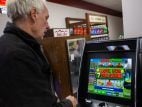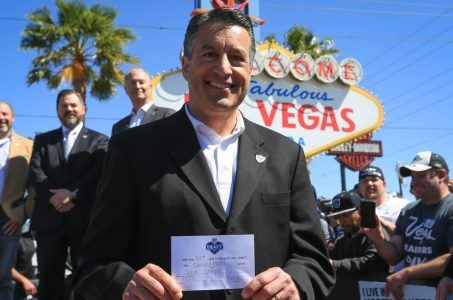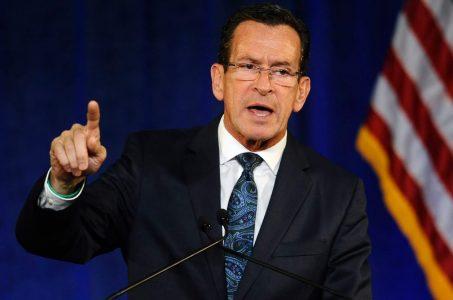Missouri Gaming Equipment Manufacturer Still Funding Political Campaigns
Posted on: September 13, 2020, 03:00h.
Last updated on: September 13, 2020, 02:18h.
Torch Electronics, a provider of slot machine-like games to Missouri businesses, continues to donate to the campaigns of state politicians who could vote on whether the devices are legal.

The Missouri-based company is one of the largest contributors to Missouri Growth, a political action committee (PAC) which recently spent approximately $37,000 on Democratic and Republican races for state House or Senate seats, according to the St. Louis Post-Dispatch. Torch donated $90,000 to the PAC in June, the regional newspaper said.
Torch also contributed more than $20,000 to the current re-election campaign of Gov. Mike Parson, a Republican. The donation was made through another PAC: Uniting Missouri.
Earlier this year, the state’s legislature attempted to ban the kinds of slot-like devices provided by Torch. The legislative effort failed.
Judge Drops Charge Against Torch
Torch won a legal victory this month after a judge dismissed a gaming charge against the company. Chariton County Associate Circuit Judge Andrea Vandeloecht dropped a first-degree promoting gambling case against Torch after she ruled there was insufficient probable cause for the case to continue, the Post-Dispatch said.
Linn County Prosecutor Shiante McMahon charged Torch in January with the felony after gaming devices were seized from a convenience store. She plans to refile the charge. If found guilty, the company could pay a $10,000 fine, the newspaper said.
Last year, gaming devices like those provided by Torch were found in an estimated 665 businesses in the state, Missourian.com, an online news site, reported, based on information from a legislative source. At least 80 complaints were filed with the Missouri Gaming Commission (MGC) about the devices, the report added.
The gaming devices currently are not regulated. Their proceeds are not taxed, and no money from their use goes to fund public education, in contrast to regulated slots.
State Sen. Dan Hegeman, R-Cosby, chairman of the Senate Budget Committee, told the Post-Dispatch the slot-like games “fleece our schools of vital funding.
I continue to believe these machines are illegal and am hopeful [a] … pending court case will provide clarity to the situation,” Hegeman added.
In Platte County, Kansas-based Integrity Gaming has been charged with first-degree promoting gambling. Last month, the case went to trial and Platte County Circuit Judge Thomas Fincham is expected to announce a verdict later this month, the Post-Dispatch said.
Torch Says No Element of Chance
Torch terminals resemble slot machines. A player puts in money, selects a game to play, and then selects a wager, the Post-Dispatch explained. Winners get paid by a cashier at the business where terminals are located, typically at convenience stores, restaurants, and small markets.
Torch contends its gaming machines are legal because there is no “element of chance,” the Post-Dispatch said. Players can view the outcome of their wager before moving ahead.
Company officials further say their machines “fall outside the definition of a ‘gambling device’ under Missouri law,” the Post-Dispatch said. They call them “no-chance game machines.”
Gregg Keller, a spokesman for Torch and a state Republican political operative, told the Post-Dispatch last week the company’s machines “adhere to the letter and the spirit of the law, and we appreciate the Court making the same finding.” Casino.org reached out to Keller for additional comment, but he did not respond immediately.
Both the MGC and Missouri Highway Patrol have concluded the Torch machines are “gambling devices.” That makes them illegal unless they are in regulated casinos, the Post-Dispatch said.
Also, Missouri Lottery officials are concerned the gaming devices compete with lottery ticket sales.
Between March and June, the use of slots and other coin-operated amusement machines in businesses was banned by Missouri health officials because of coronavirus risk.
Related News Articles
Connecticut Governor Balks at MGM Proposal for $675M Bridgeport Casino: ‘Impossible’
North Korea Decriminalizes Horse Racetrack Gambling, Minimum Age Set at 12
Most Popular
LOST VEGAS: ‘Tony The Ant’ Spilotro’s Circus Circus Gift Shop
Las Vegas Overstated F1 Race’s Vegas Impact — Report
Mega Millions Reportedly Mulling Substantial Ticket Price Increase
Las Vegas Strip Stabbing Near The Strat Leaves One Man Dead
Most Commented
-
End of the Line for Las Vegas Monorail
— April 5, 2024 — 90 Comments -
Mega Millions Reportedly Mulling Substantial Ticket Price Increase
— April 16, 2024 — 8 Comments -
Long Island Casino Opponents Love New York Licensing Delays
— March 27, 2024 — 5 Comments
















Last Comment ( 1 )
The timing of the installation of some 4000 torch machines in Missouri and the billions of dollars of covid relief money was very, very profitable for one slot machine manufacturer. Because they are not regulated the machines will pay out a much lower rate. With thousands of people using their stimulas checks in hopes of winning at the local convenant store most likely loose all they put in these machines.Yes the machine will tell you the outcome of the next play , which 80 times out of 100 will be a no win ,yet I've watched players keep putting money into the devices hoping to get back what they have lost, So the machine is doing exactly what it tells you it's going to do, It's PreSet by the manufacturer to be as profitable as possible. This Missouri company has taken billions of dollars from Missouri residents and until regulated will continue to welcome the millions per day that is put into these No Chance games.What is really surprising is that this is happening in Missouri , were is the moral guidances from our lawmakers and the many religious organizations, can Missouri government be bought by a slot machine manufacturer, maybe.